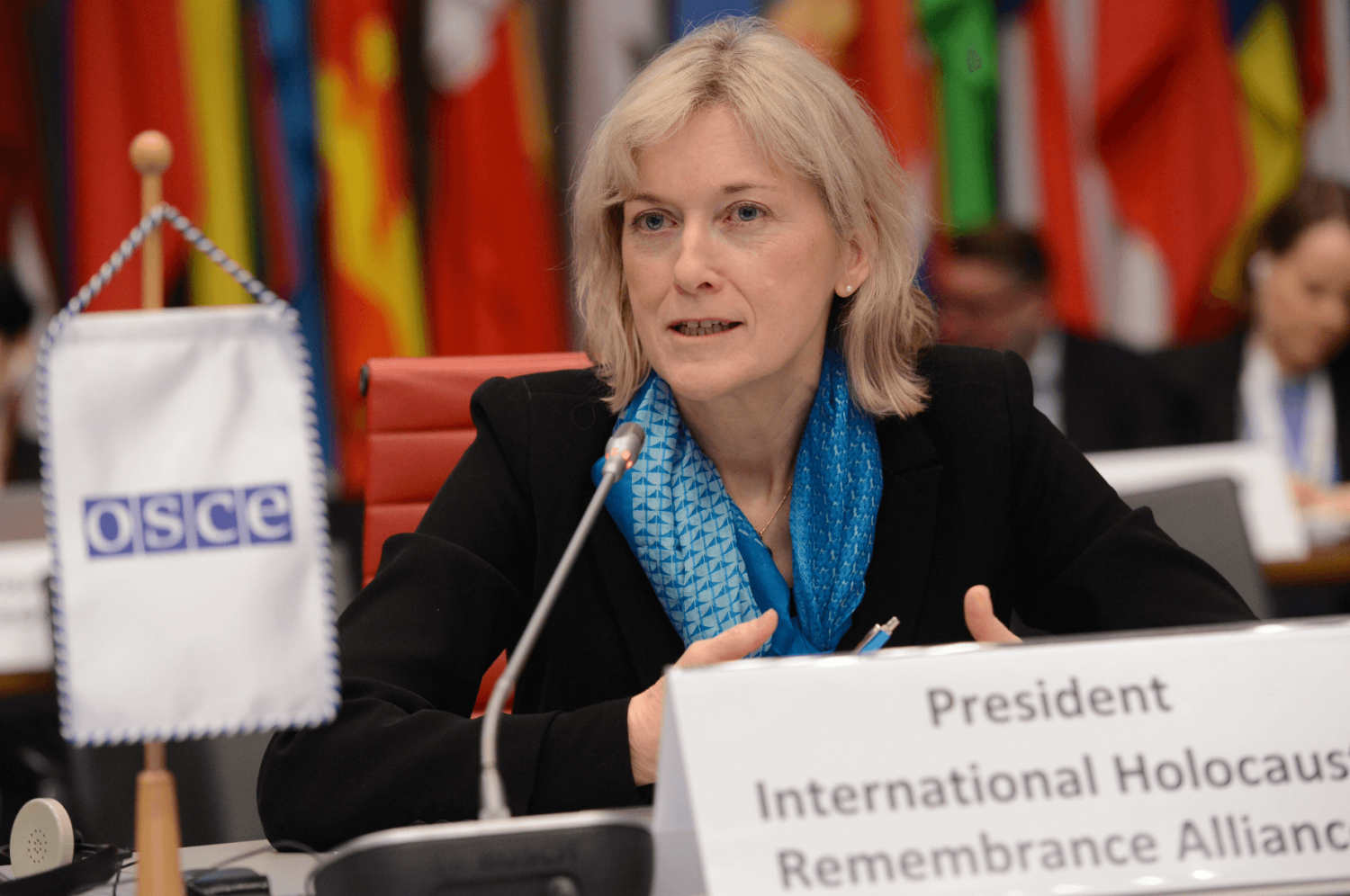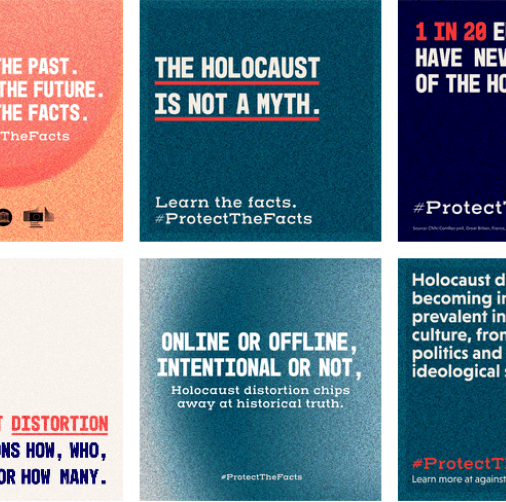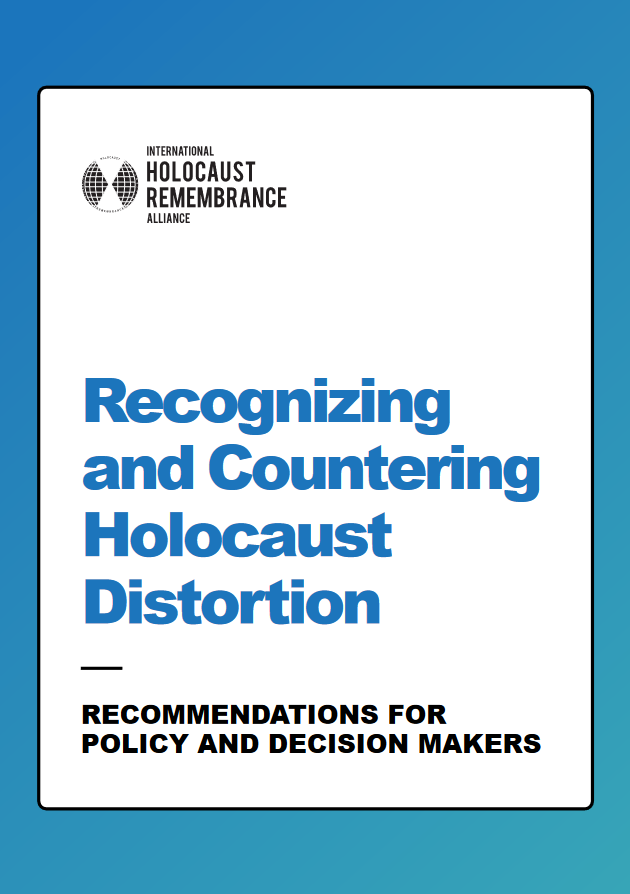


IHRA Chair addresses the OSCE Permanent Council for International Holocaust Remembrance Day
In honor of the victims and suvivors of the Holocaust, IHRA Chair Ambassador Ann Bernes gave an address to the Permanent Council of the Organization for Security and Co-operation in Europe (OSCE) on 26 January 2023, which can be read below. The Permanent Council, the OSCE’s principal decision-making body, is made up of delegates from the organization’s 57 participating States.
The OSCE Office for Democratic Institutions and Human Rights (ODIHR) is a close IHRA Permanent International Partner and a partner in the Protect the Facts campaign. The office provides support, assistance, and expertise to participating States and civil society to promote democracy, rule of law, human rights and tolerance and non-discrimination.
Mister Chairperson,
Excellencies,
Ladies and Gentlemen,
It is an honor to join you here today to mark International Holocaust Remembrance Day. I am speaking to you in my capacity as Chair of the Swedish Presidency of the International Holocaust Remembrance Alliance – the IHRA – which is the only intergovernmental organization with a mandate focused solely on issues related to the Holocaust and the genocide of the Roma.
We gather 35 Member Countries, 10 Observers and 8 Permanent International Partners to promote and enhance education, remembrance, and research of the Holocaust and the genocide of the Roma, as well as to combat Holocaust distortion, antisemitism, and antigypsyism – and one our closest and foremost partners is of course the OSCE and its Office for Democratic Institutions and Human Rights, given their important role in these fields.
Recently, for example, ODIHR joined us as a valued partner in our Protect the Facts campaign which raises awareness of Holocaust distortion. We warmly welcome this new step in our joining of forces since cooperation built on shared values is the only way forward.
In that vein, we also very much appreciate the important work being done by the Personal Representative of the OSCE Chairperson-in-Office on Combating Anti-Semitism, as well as the Conference on Combating Antisemitism in the OSCE Region in Skopje that the Chairpersonship of North Macedonia is soon going to hold.
Excellencies,
We are here today because remembrance of the Holocaust is the responsibility of each and every one of us. The IHRA was founded for that exact purpose, and because governments and political leaders took on the responsibility of ensuring that the victims and survivors are never forgotten. Our network is now made up of many actors and partners that help one another safeguard the memory and pass it on to younger generations.
And yet increasingly, I worry about how short a memory we have.
This year marks exactly 90 years since the Nazis’ rise to power. When Hitler was appointed chancellor. When a month later, civil rights were suspended. And parliament’s power was gutted. When Nazi Germany’s first concentration camp was established, Jewish civil servants were dismissed en masse, and Jewish-owned businesses boycotted. When all aspects of culture, the economy, education, and law were brought under Nazi control, and thousands of university students burned thousands of books they considered “un-German,” including those by Heinrich Heine and Helen Keller. When by July of that year, just 90 years ago, the Nazi Party was the only party left in Germany.
How quickly democracy was dismantled.
And the driving force – let us never forget – was antisemitism.
90 years later, we are still grappling with this pernicious hatred. But there is much we do not know about the full extent of today’s antisemitism. Data on antisemitism and hate crime is notoriously flawed: incidents are underreported, and whatever data is collected can rarely be compared across borders, or even from year to year.
Our knowledge has, without a doubt, been improved with the application of the IHRA’s working definition of antisemitism and ODIHR’s effective support of governments in developing monitoring mechanisms, but there is still much that needs to be done to enhance our understanding of the pattern and how to best prevent and fight it.
However, we do know this:
We know from a survey conducted by the EU’s Fundamental Rights Agency in 2018 that one in three Jewish respondents (34 %) avoided visiting Jewish events or sites because they did not feel safe. That an even greater number (38 %) considered emigrating in the five years preceding the survey because they did not feel safe. We know from OSCE hate crime data that 2,531 antisemitic incidents were reported for 2021. And that approximately half (49 %) of U.S. Millennials and Generation Z have seen Holocaust denial or distortion posts on social media or elsewhere online.
Taken together, this presents a sinister and highly disturbing picture.
But 2023 is not 1933.
This is thanks to the tireless work of those who survived, who bravely told their stories and inspired so many others to work towards societies based on compassion. We also have a multitude of shared commitments and institutions – like the OSCE – in place. And there is also a trend running in parallel to the negative one – one that makes us better equipped to respond.
Let me mention an example of this other, positive trend:
We are now in the second year of implementing the pledges made at the Malmö International Forum on Holocaust Remembrance and Combating Antisemitism – Remember-ReAct – and our follow-up and reporting from the first year show that the Malmö Forum provided the necessary impetus for multiple policy decisions and strategic initiatives to be set in motion.
The around 150 pledges were made by countries, international organizations, private companies, and civil society, and represent a wide range of activities, including new government offices, new museums, research projects, funding initiatives, training programs, and entire strategies to counter antisemitism, antigypsyism, and racism. These concrete steps are good examples of how we can implement longstanding commitments.
Commitments like those outlined in the OSCE’s 2004 Berlin Declaration and in the conferences and documents that followed – the Basel Ministerial Council Declaration, and the Words Into Action Program – which all recognize that antisemitism poses a threat to democracy and its values, and therefore, to overall security in the OSCE region and beyond.
Commitments like those underlined in the Stockholm Declaration of 2000 and the 2020 IHRA Ministerial Declaration which stress that all of us have a responsibility to remember.
All Malmö Forum Pledges also fill important gaps in our approach to strengthening our pluralistic democracies and to countering incitement to hatred and violence.
And all Malmö Forum Pledges help to strengthen our memory.
Ensuring the full and successful implementation of the pledges requires sustained commitment across the political level, as well as collaboration across broad coalitions – not least since many of the pledges constitute the launch of long-term processes and the institutionalisation of remembrance.
One of Sweden’s Malmö Forum pledges was to establish a new Holocaust museum. The idea for this museum came from a man named Max Safir.
Max Safir was born into a Jewish family in Poland in 1925. He survived Auschwitz-Birkenau and the concentration camp Ebensee and came to Sweden in the middle of the 1950s where he settled in Katrineholm, worked, and started a family. Later on, he started giving – what ended up being – countless lectures in schools about his experiences and traveled with young Swedes to Holocaust memorials throughout Europe.
But, in spite of all these efforts, he did not see this as being enough. His vision was to create a place in Sweden where his and other survivors’ testimonies could be kept together and preserved.
In other words, Max Safir wanted to make sure these testimonies wouldn’t be forgotten.
Max passed away in June 2020 and sadly was not able to see his vision become reality when the new museum was opened two years later, in June 2022. But the museum is there, and it is there to stay, just as he wanted.
This museum was a pledge to the Malmö Forum but it began as a promise made to Max. And it has become a promise to all of Swedish society, and to both current and coming generations.
A promise that the Holocaust will be remembered. That the experiences and stories will remain part of the cultural heritage that guides us today and will continue to guide us in the future.
This promise could be fulfilled because there was the political will to do so.
Distinguished delegates,
Antisemitism is testing the cohesion of our pluralistic democracies on many fronts. But 2023 is not 1933. We are better equipped to respond.
But we must sustain the political will to do so. Let us do all we can to strengthen our memory. To remember how quickly antisemitism unraveled democracy. And what that unleashed upon the world.
Let us do all we can to uphold our commitments. And the promises we made to the victims, to the survivors, and to future generations.
Sign up to our newsletter to
receive the latest updates
By signing up to the IHRA newsletter, you agree to our Privacy Policy







